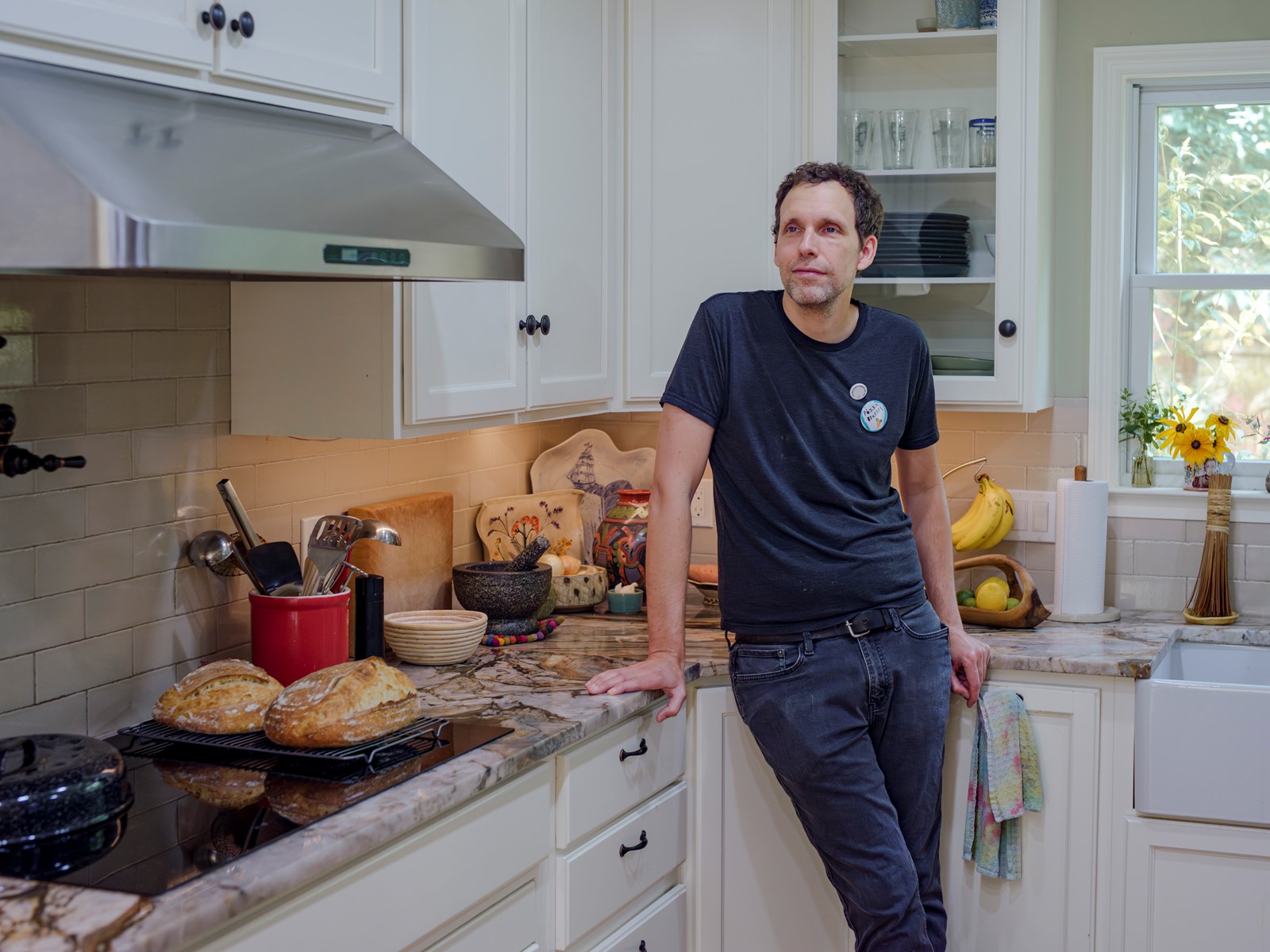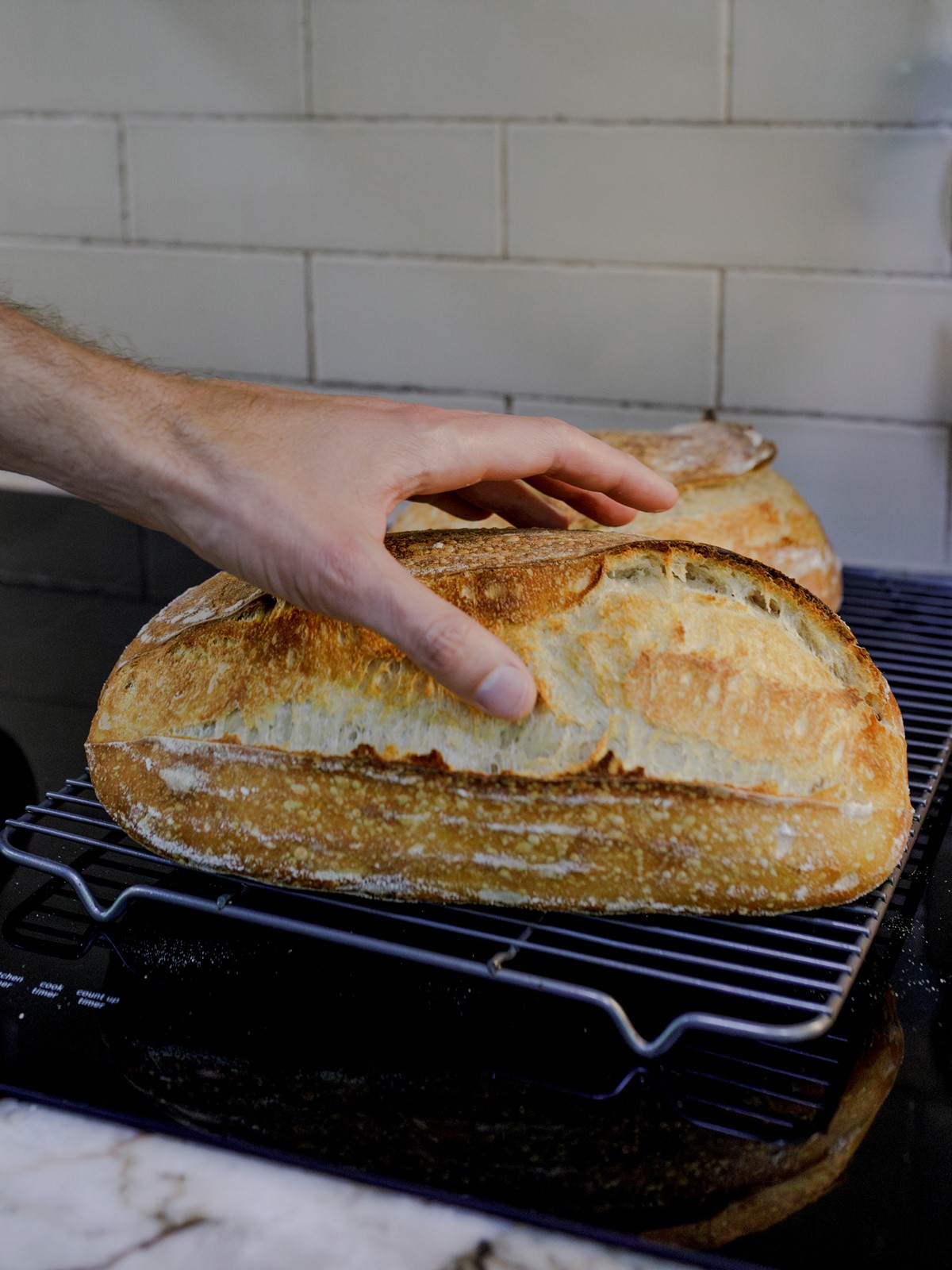

Erik Fabian figured his new product would have landed in American kitchens by now. The DoughBed, a suitably warm resting place for flour and yeast on its way to becoming a loaf of sourdough bread, would ideally have been generating positive reviews and cash to finance his business.
Instead, Fabian, 49, is waiting for a container ship bearing the first DoughBeds from his factory in China to dock at the Port of Houston, about three months later than expected. He is scrambling to secure credit in the face of a cash crunch. Rather than plotting growth strategies, he is consumed with survival.
The reason for his distress is the global trade war championed by President Donald Trump. Months of extraordinary volatility — with tariffs announced, then delayed, then changed — have left Fabian confused about the basic economics of his business. Like millions of small-business owners dependent on imports, he has grown accustomed to a menu with no palatable options: Pay an expensive tax now, or hope for better while accepting delays.
Fabian had planned to ship his new product from China in early April. At the time, tariffs on Chinese imports reached 145%. So he waited until late May, when the tariffs had been reduced to 30%.
His decision pushed the arrival of the DoughBeds from spring — an excellent time to launch a new kitchen product — into summer, a miserable season to introduce a gadget tied to turning on the oven. He has postponed a marketing push until fall.
The delay is especially inopportune because Fabian is on the hook to satisfy preorders placed via Kickstarter, the crowdfunding platform that he has relied on to raise money while generating word-of-mouth for new products.
His campaign on Kickstarter worked as intended, stoking anticipation for the DoughBed. Yet that yielded the worst outcome — customers flocking to his website only to encounter disappointing news: “Sold out.”
“We are losing momentum,” Fabian complained. “You spent over a year building to this moment of launch. That moment, you can’t really recreate it.”
On a recent morning, he was trying to figure out how to come up with $150,000 to pay the tariffs on his incoming shipments between now and fall. And he was struggling to grasp the purpose of the levies. Nearly all of the products he has manufactured in China are either impossible to find in the United States or available only at triple and quadruple the price.
More than anything, he was nursing a sense of lost opportunity. “Instead of thinking about my future innovations, and creating a spatula or an alarm or baking vessels, I’m thinking about Trump,” he said. “I’m just kind of tied to his whims.”
Fabian knows how to run a business under trying circumstances. The idea that eventually turned into Sourhouse was born in 2020, during the COVID-19 pandemic.
A builder of brands, Fabian had previously worked in marketing at Moleskine, the retailer of high-end notebooks. Suddenly, he was a stay-at-home father, tending to a newborn daughter and a 5-year-old son in a world under lockdown. His family decamped from its Brooklyn apartment to Jacksonville, Florida, to live with Fabian’s in-laws in their larger home. Fabian began exploring a business that seemed suited to the times. Amid the isolation and fear, people were taking up baking, many for the first time. They would need some help.
Fabian had for years been a sourdough baker. He swapped tips with friends and watched YouTube videos. Many bakers complained about the difficulties of nurturing their starter, the living culture of yeast and bacteria used to make a sourdough loaf. Fabian had been frustrated in his early attempts, stymied, he discovered, by the frigid winter temperatures of his Brooklyn apartment.
Bakers shared improvised solutions, like putting starter in the microwave, or stashing it in warm spots of the kitchen. But none of these approaches were reliable. He began experimenting. The result was a device that could keep sourdough starter at what he came to call the Goldilocks zone: 75 to 82 degrees Fahrenheit.
He conferred with a friend, Jennifer Yoko Olson, an industrial designer in Brooklyn who had worked on products like furniture and Wi-Fi routers. He shared with her his earliest designs for what became their first product — Goldie, a heat pad to hold a jar of starter. Olson was intrigued. They began spending nights and weekends tinkering.
In May 2022, they had a prototype. By then, Fabian and his family had moved to Asheville, North Carolina. His wife, who had previously worked at Kickstarter, counseled them on how to use the platform to raise money. There, they tapped into enthusiasm for cooking-related products.
Their Kickstarter campaign yielded preorders worth more than $100,000, enough to begin making the product. A second effort on another crowdfunding site, Indiegogo, raised $30,000.
They found a network of factories in China that specialized in making products designed by startups. That operation, Platform88, was the brainchild of Jacob Rothman, an American living in Shanghai. Rothman had spent most of his adult life working in China, using factories to make goods for consumers around the globe.
In December 2022, the first Goldie orders shipped out to customers. And by the middle of the next year, Fabian and Olson had begun developing the DoughBed.
Faced with higher costs via tariffs, Fabian recently lifted the prices of his products by 30% across the board. He worries that he is testing the limits of his customers.
“Our whole model is threatened,” he said. “Maybe DoughBed doesn’t survive more than this year, because the cost to sell it is too high.”


 PREVIOUS ARTICLE
PREVIOUS ARTICLE
